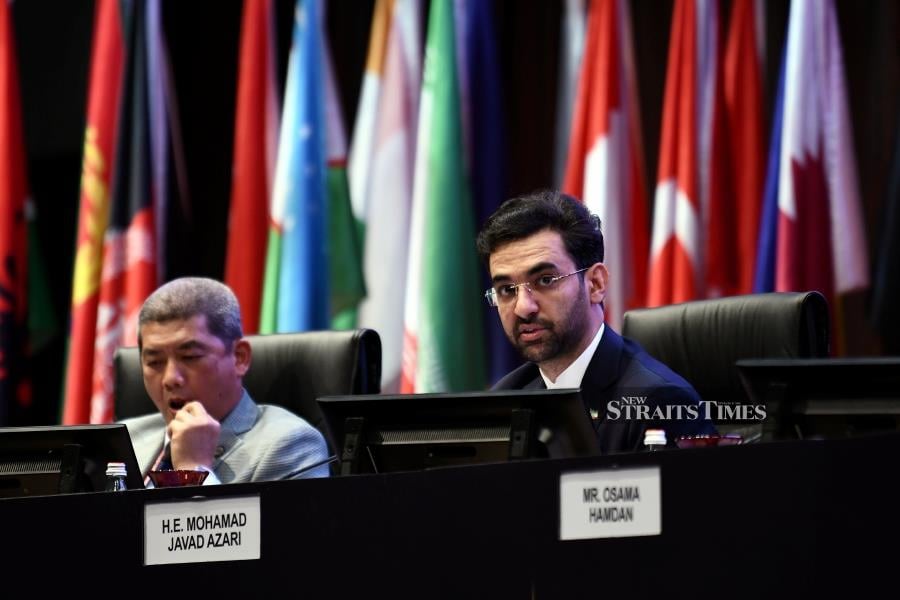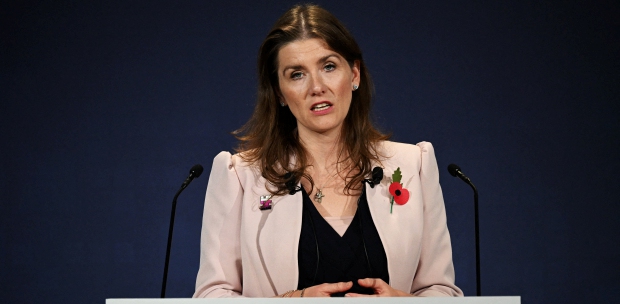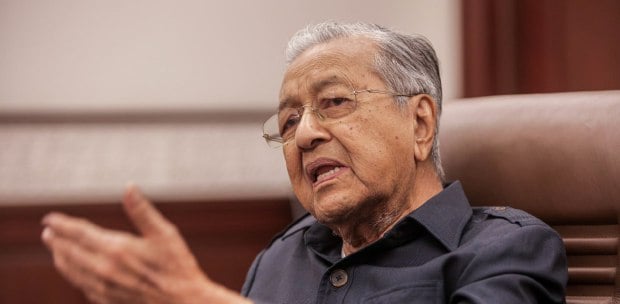KUALA LUMPUR: The Muslim world has been urged to venture into hi-tech products and services innovation, especially artificial intelligence (AI) development, which is expected to contribute some US$13 trillion (RM54 trillion) to the global economy by 2030.
Iran Information and Communications Technology Minister Mohamad Javad Azari Jahromi described AI as a tool which would resolve the many challenges and problems beleaguering Muslim nations globally.
“The Muslim world today is facing many serious and conflicting challenges.
“Apart from the need for sustainable economic growth and prosperity, the need to create jobs for growing population and the need to protect the environment, the challenges include the need to improve and enhance efficiency in urban management, the need to respect privacy of individuals and protect their data, the need to provide healthcare and wellbeing for aging population, the need for clean air and water, the need to provide food to a growing population as well as the need for protection against growing and increasingly dangerous natural disaster.
“Innovating hi-tech product and services such as the development of the AI can be seen as a tool to overcome these challenges,” Javad said here today.
The Iranian minister was one of the four speakers of a plenary session titled: “Advance High-Tech” held in conjunction with the Kuala Lumpur Summit 2019.
Moderated by the summit steering committee member from Lebanon, Osama Hamdan, other speakers at the session were Malaysian Defence Minister Mohamad Sabu, Russian technology expert Igor Ashmanov and Zurich University of Applied Sciences lecturer Prof Khaldoun Dia Eddine.
Prime Minister Tun Dr Mahathir Mohamad was among members of the audience at the session.
Javad said AI should not be reduced to merely a military tool, utilised in geopolitical competition or in the Cold War arm race. Such technological development should be utilised in the same way as inventions which elevate the wellbeing of human beings.
In order for the Islamic world to be leaders in AI development, on par with China and the United States (US), Javad said Muslim nations need to have well-trained work force, availability of financial resources as well as appropriate and reliable infrastructure.
Muslim nations need to have a sufficient customers base and market size if they aspire to compete with China and US, which Javad described as ‘AI superpowers’ in the world.
In this regard, he cited Iran as his example of a Muslim nation which was able to make inroads in hi-tech products and services development sector despite being slapped with unilateral sanctions by the United States.
“We are seizing this opportunity to focus on our other native resources and capabilities for expanding our infrastructure. We have created an active innovation ecosystem by relying on our young energetic well-educated up-to-date and motivated work force.
“We have heavily invested to expand science and technology parks and promote local hi-tech products and services.”
He warned that Muslim nations would be left behind if they lag in AI development.
“To most countries in the world, Google rules our search engine, Facebook (rules) our social network and Amazon (rules) our e-commerce.
“AI may extend the same propensity to monopolise those with update industries leading to a decline in a competitive market mechanism. As a result a new corporate oligarchy in the 21st century may emerge.”
Earlier, Mohamad Sabu highlighted the importance for the Muslim countries to prepare for future war which, he said, required ‘future defence’ capabilities.
“This includes unmanned and autonomous air, space and land systems. We must be ahead in C4ISRT (Command, Control, Communications, Computers, Intelligence, Surveillance, Reconnaissance and Targeting) in defending peace and security.
“We need to utilise hi-tech sensors and systems instead of doing business as usual by developing boots on the ground
.
“Future defence is characterised by a smart army. A small yet effective force must be equipped with latest knowledge and expertise with modern weapons and communications system.”





